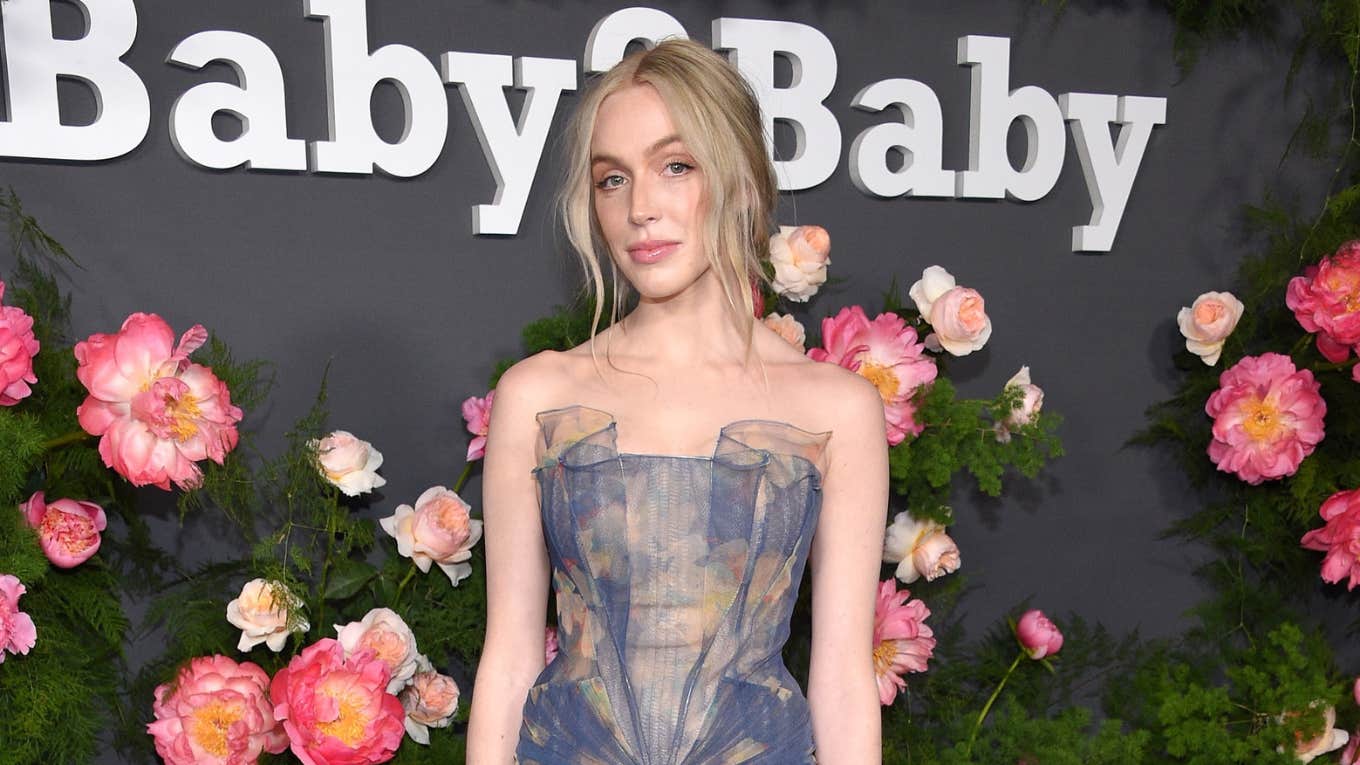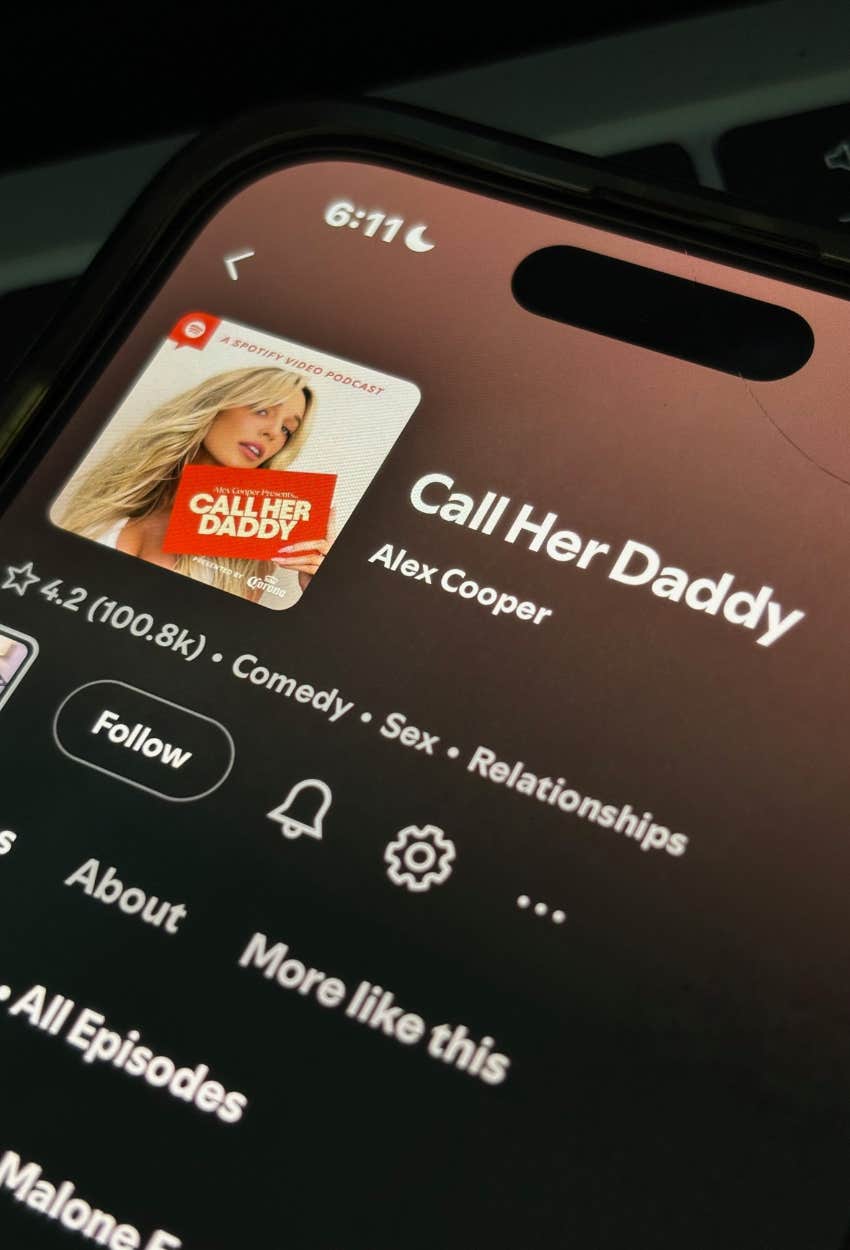Chicago Cubs Fans Livid After 'Call Her Daddy' Podcast Host Alex Cooper Mocked Their Baseball Tradition
Is it really this serious? According to Cubs fans, absolutely.
 DFree | Shutterstock
DFree | Shutterstock "Call Her Daddy" host Alex Cooper has been a podcast sensation for years now, and her show is consistently among the most popular in the country. But Chicago Cubs fans are absolutely not feeling the love after Cooper's recent visit to Wrigley Field to sing "Take Me Out to the Ballgame."
Chicago Cubs fans are livid at 'Call Her Daddy' podcast host Alex Cooper.
Baseball is one of the most hallowed of American traditions for reasons that will never be clear to me (I am just disclosing my biases!), and perhaps nowhere is more dedicated to baseball than Chicago. As someone who's lived in New York, Los Angeles, and the Windy City, I can tell you that no team's fanbase is quite so … well, fanatical as the Cubs'. (It's honestly a little weird.)
Between that and Wrigley Field's status as one of the few remaining old-fashioned, all-American ballparks, Cubs games are full of traditions treated with the kind of reverence usually reserved for, like, deities.
Which is why it was likely no surprise to anyone who's spent any length of time in Chicago that "Call Her Daddy" host Alex Cooper's goofball rendition of "Take Me Out to the Ballgame" went over like a lead balloon for the assembled fans in Wrigley Field on July 6.
Cooper almost immediately got booed so loudly it could be heard blocks away.
Cooper took to the mic during the Cubs versus Cardinals game's seventh-inning stretch to sing the beloved (by baseball fans, anyway) tune, "Take Me Out to the Ballgame," a sing-along frequently led by an invited guest at Cubs home games.
Flanked by pals doing choreographed moves, Cooper sang the song in a weird, booming low voice that was obviously not taking the whole thing seriously. To some (probably most), it would appear she was just goofing around, but that is not how the fans took it at all.
 bella1105 | Shutterstock
bella1105 | Shutterstock
Boos began to ring out almost instantaneously. NBC Chicago reported that a fan on Reddit said the booing was so loud they could hear it all the way at their condo four blocks away from the ballpark. Cooper appeared unfazed, but the backlash online was basically instantaneous.
The seventh-inning stretch 'Take Me Out to the Ballgame' is a hallowed tradition at Wrigley Field.
Remember those deeply revered traditions I mentioned? The seventh-inning "Take Me Out to the Ballgame" sing-along is one of them, and being invited to lead it is considered a form of honor.
Many online theorized that Cooper might not be a good singer and so was goofing around rather than face-planting, which is understandable. Still, many fans felt like she should have at least tried to take the experience as the honor it's meant to be.
"Yeah, some people are horrible singers, but it’s always clear they’re excited to do it," one Redditor wrote. "Making a joke of a pretty major tradition at Wrigley is not the vibe." Another added, "Everyone is so terrified of sincerity these days. Just sing the dang song."
Cubs fans are definitely a bit over the top (say you hate the song "Go Cubs, Go" in a bar in Wrigleyville and watch how long it takes some popped-collar finance guy named Braden to threaten your life, don't ask me how I know), but even a hater like me can see why Cooper's performance didn't land. When you're an outsider invited into an institution, you respect the tradition enough to follow the institution's lead, not make it all about you.
As another Redditor put it, "it’s okay to not sing well, but you’re supposed to be leading the stands in the song, not goofing around like a middle schooler." It may not be this serious to Cooper (or me), but it is to the people in the stands. Making a spectacle of yourself by mocking it instead of treating it like the deeply loved tradition it is? Well, as my baseball-loving dad would say, "It's like farting in church, you just don't do it."
John Sundholm is a writer, editor, and video personality with 20 years of experience in media and entertainment. He covers culture, mental health, and human interest topics.

